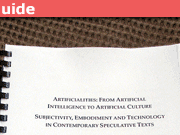Research Work and The Lab Book As a Physics Major
Full Chapter List - So You Want To Be A Physicist... Series
Part I: Early Physics Education in High schools
Part II: Surviving the First Year of College
Part III: Mathematical Preparations
Part IV: The Life of a Physics Major
Part V: Applying for Graduate School
Part VI: What to Expect from Graduate School Before You Get There
Part VII: The US Graduate School System
Part VIII: Alternative Careers for a Physics Grad
Part VIIIa: Entering Physics Graduate School From Another Major
Part IX: First years of Graduate School from Being a TA to the Graduate Exams
Part X: Choosing a Research area and an advisor
Part XI: Initiating Research Work
Part XII: Research work and The Lab Book
Part XIII: Publishing in a Physics Journal
Part XIV: Oral Presentations
Part XIII: Publishing in a Physics Journal (Addendum)
Part XIV: Oral Presentations – Addendum
Part XV – Writing Your Doctoral Thesis/Desertation
Part XVI – Your Thesis Defense
Part XVII – Getting a Job!
Part XVIII – Postdoctoral Position
Part XIX – Your Curriculum Vitae
Now, where were we? Oh yes! You have now started with your actual research work. You and your adviser have agreed on at least the general type of area you will be working in and you have started to do a lot of literature search of what is going on in that field, what is known, what is unknown, what are the hot areas of study, etc. One important note here is that to NOT be rigid in one particular area especially during the early years of your project. In many cases, you and your adviser are still exploring an area of study before both of you narrow down into the exact, specific area that will eventually end up as your thesis research work. The best thing you can do right now is to gain as wide of a knowledge base as possible. If you are working in tunneling spectroscopy, don’t try to limit yourself to just one family of materials. If a wide range of material is available and open for study, go for it. You’d be surprised how something that may appear at first to not be important, might turn out otherwise later on. Trust me on this.
What I would like to stress in this installment of this series is the ”ethics” of doing research work. I will illustrate this from the point of view of an experimentalist, but there are elements here that are also relevant to theorists. In general, the ethical practice of doing research applies to every field of science, so use what I will be described as a ”case study” and apply it appropriately to your line of work/study.
When I used to conduct physics laboratory sessions for undergraduates, one of the practices I tried to instill onto my students was the writing of everything they did and observed during the experiment into a laboratory book. I want them to acquire the skill of writing these observations clearly, to write down what they are doing, why they are doing it, and their observations, even to the extent of writing down what they are thinking regarding the data they collected. Was there something peculiar? Is there something not working correctly? Are the data consistent with something else? Are things just making no sense? Is the equipment malfunctioning or not giving the expected results?
Not only that, I wanted them to write all of these in INK, and I prohibited any ”erasing” of anything they wrote in their lab book. If they think they made a mistake, just cancel it out, but leave it legible. Now was I being psychotic for insisting on things like this? I hope not, and I will explain why. In doing research work, it is imperative that you record almost everything clearly. In most cases, it is for your own good, so that if and when you need to figure out what you did, later on, you just don’t have to rely on your memory, especially if you want to know what you did then, what parameters were used to make such a measurement, etc. However, there is also another important reason for such a record. While this doesn’t occur very often, when it does, you’ll be glad you have such a record. In certain cases where it is necessary to establish who did what, and when, your lab book is often used as official evidence, especially in the court of law. If you work for an institution, be it governmental, academic, or commercial, the lab book is the property of that institution (i.e. you can’t take it with you when you no longer work for that institution). If there are disputes, questions, issues, etc. arising out of your work, your lab or record book is the definitive evidence in such matter.
This is why you should always write your entries with a date and in ink. You want as permanent of a record as possible. In addition, if someone else comes in and wants to reproduce your work, this is the ultimate source to see what was done exactly.
We have seen cases where improper or lack of record-keeping created serious consequences. The infamous Schon debacle at Bell Labs is the most recent example. The fact that he could not show any written record of his experiments (he could not produce any lab books of his experiments) created a serious doubt on the validity of his work. This resulted in his fall into disgrace – he was fired from Bell Labs, a large portion of his published work was retracted, and his alma mater withdrew the granting of his Ph.D. degree.
Now granted that things like this do not occur very often (luckily), but many smaller forms of double-checking do. It is never too early to make sure you keep a careful record of what you are doing. Even if you are a theorist, it is always a good idea to make sure your work and ideas are kept in a record book. Not only will this allow you to go back and remember what you did (or why you were doing it), but it allows others to understand what you did and when you did it. Besides, if you win the Nobel Prize and become a world-famous physicist, they’ll want your doodling to be put in a museum or someplace! :)
Moral of the story: keep as complete of a record of your research work as possible.
ADDENDUM: I know I sometimes have uncanny timing, but this is ridiculous!
In the just-released online edition of Nature (22 September 2005), a news report about the embattled Japanese researcher has indicated that his lack of record-keeping is casting doubt on his work. The report says that
“A respected Japanese scientist who failed to produce laboratory notebooks confirming his published results now faces a furor over the credibility of his findings. On 13 September, the University of Tokyo’s School of Engineering held a press conference to say that Kazunari Taira, a professor at the school who specializes in RNA research, had not provided raw data to verify his team’s results. The RNA Society of Japan has also questioned some of Taira’s methods.”
So, kids, I’m NOT making this up when I say that you’d better start learning to write everything down on paper when you are doing something related to your studies/work. It may be a boring and tedious task, but when stuff happens, you’ll be sorry that you didn’t.
PhD Physics
Accelerator physics, photocathodes, field-enhancement. tunneling spectroscopy, superconductivity








@Andy Resnick, how about just getting the raw data off onto another computer for analysis?Sure, there's lots of options available- I'm sure some people do that.
@Andy Resnick, how about just getting the raw data off onto another computer for analysis?
How do you backup the data drives that are not on a network?That's the main concern- long-term data storage. AFAIK, there are no 'best practices' for our kind of data (meaning we don't generate classified data, patient data, student grades, things that require a certain type of secured, guaranteed, access). For those types of data, there are resources like Iron Mountain:
http://www.ironmountain.com/
In my lab, we keep experimental samples for at most 3 years past the date the data appeared in a publication. Raw digital data is just backed up to an external hard drive and when the hard drive is full, we buy another- and it's worth mentioning we generate maybe a few GB of data (images, mostly) per month. 4TB drives are cheap.
I also encourage students to affix images/printout/etc directly into the lab notebook as needed. Even so, use of a 'secure' lab notebook is becoming secondary to security of the raw data itself, especially when stored on network-accessible computers. Personally, I don't store any raw data on any networked computer, and periodically back-up the raw data onto removable hard drives. My lab computers that perform data acquisition are not on our network.How do you backup the data drives that are not on a network?
This is getting absurd, and it is as if you are just trying to have an argument with me. I'm an experimentalist. It is not as if I don't know these things that you are telling me.
You publish what is necessary to make your point across, and include everything to be sufficiently convincing. If it means publishing every single piece of data or calculation, then so be it! But more often than not, this is NOT necessary! The LHC need not publish every gazillion bits of data that it used in its analysis. It was sufficient for it to represent them in the figures and analysis that they published in a mere few pages. As a referee, I don't ever recall any paper that I've evaluated that had to include ALL the raw data as a necessary part of the paper. This is what I meant as it not being "practical". It isn't necessary in the majority of the cases. I have seen pedagogical papers in AJP and EJP that included raw data, but those are intrinsic to the papers, meaning when necessary, they are included!
My original response to strangerep was to ask when has it ever happened that a theoretical calculation is too long to get published? If it is a necessary part of the paper, then I do not see any reason for there to be any reason it will be denied for being "too long". The Andrew Wiles paper is a prime example, and even then, he certainly didn't have to include every single step in his derivation!
Very few people read every single word or line in a publication! In fact, the overwhelming majority of us go directly to the guts of the paper, and the main points. If you want to know more, then you dig deeper, contact the authors, etc.. etc. It is why PRL is limited to only 4 pages, so that you get to the main points right away and get it over with. You publish only what is necessary, for whatever length that is necessary.
I don't care to continue with this line of "discussion" in here, because this is going into nitpicking the misinterpreted details of what I said that isn't even part of the original post!
Zz.
The distinction was made in the following paragraph to that statement.
Zz.No, the difference was reiterated in the following paragraph. The fact that something is theoretically possible to be published does not mean it is not too long to publish.
Also, you missed a factor of 10. I said the appendix was 1000 pages long. You invited me to pay page charges in Phys Rev for a 100 page article, and tried to use that as evidence that there was no such thing as an article too long to publish.
In fact, background data and calculations being too long or too large to publish are a usual thing rather than being rare. They occur in many experimental research projects where voluminous data is produced. Or where there are complicated custom designs involved in the equipment. Or where there are detailed and tedious theoretical calculations. Or where there are custom computer programs used to produce the results.
The usual method of dealing with this involves some kind or archive someplace. On request a reader of the article can be provided with a copy. Possibly under a non-disclose agreement when there are proprietary details. And possibly requiring the reader to pay duplication costs.
But the mere fact that there is such a thing as the usual method of dealing with it shows that it is not rare.
Recently the company I work for did some work for a research lab. They have something like 50 people working in a program of research attempting to solve a particular problem. This program involves a series of projects. Each project involves several major chunks of equipment, and several tests, or even several series of tests.
Keeping track of the large amount of information involved would be a challenge. Making it available to everybody who needed it would be another layer of challenge. Their solution was to use a wiki.
Each piece of lab equipment gets a wiki. This records a variety of things such as the current condition of the equipment, the manuals for various procedures, the schedule for various procedures and tests, and how this equipment relates to other equipment.
Each test gets a wiki page or pages. This records the details of planning for the test, who will be on the test and what their job will be on the test, the schedule, the required equipment, the date and location of pre-test briefings, and after the test, the results and analysis.
There is an over-all wiki for the project giving the strategy, the major milestones, the problems that are known, etc.
The wiki records the time and date and person who makes every edit. And it allows reversion of any edit. And it provides a friendly environment for everybody who needs to know stuff to be able to get it. And it provides a basic security scheme that lets certain parts be hidden from general view.
A difference without a distinction.The distinction was made in the following paragraph to that statement.
Zz.
But was it really "too long to publish", or it is just impractical?
[snips]A difference without a distinction.
This is regarding a theoretical calculation being too long to publish. I encountered an example during my grad work. A colleague shared the fact that his thesis was 110 pages (or whatever it was), exactly the maximum length allowed by the university he did his PhD at. But the appendix that showed the details of the calculation was 1000 pages.But was it really "too long to publish", or it is just impractical?
Remember that a thesis is supposed to have all the painful details. A journal publication should not! A thesis is also formatted differently than a journal, so the same content is often compressed in a journal format. I'm sure a Phys. Rev. Journal would be happy to publish a 100-page paper if you are willing to pay for it and if the reviewers deem it to be necessary and appropriate. So there is no barrier here in publishing something long. Look at Andrew Wiles's paper related to "Fermat's last theorem". That isn't short either!
Please note that this is a different topic than the original article, which is on keeping proper notes and lab book, not on physics journals. I'd rather not stray from that topic in this thread, because there is already another article on journal publications.
Zz.
When has this ever happen?
Zz.This is regarding a theoretical calculation being too long to publish. I encountered an example during my grad work. A colleague shared the fact that his thesis was 110 pages (or whatever it was), exactly the maximum length allowed by the university he did his PhD at. But the appendix that showed the details of the calculation was 1000 pages.
ZapperZ submitted a new PF Insights post
Research Work and The Lab Book
Continue reading the Original PF Insights Post.A good post. I go a little further, by providing lab notebooks with numbered pages (so you can't surreptitiously rip out a page) to my students. They can be hard to find, I use these:
http://www.rspaperproducts.com/products/lab-science-books/lab-notebook-0
I also encourage students to affix images/printout/etc directly into the lab notebook as needed. Even so, use of a 'secure' lab notebook is becoming secondary to security of the raw data itself, especially when stored on network-accessible computers. Personally, I don't store any raw data on any networked computer, and periodically back-up the raw data onto removable hard drives. My lab computers that perform data acquisition are not on our network.
Not coincidentally, this could be at variance with federal government policies 'requiring' open access to raw data obtained under federally sponsored research (the "Shelby amendment" to OMB circular A-110:
https://www.google.com/url?sa=t&rct…=5QW5uN2LnFbNTcqc3vrrKw&bvm=bv.95515949,d.cWc
Not a good comparison, because that has been done before, and your vet CAN tell you easily the answer, even based on our understanding of the biology of a canine. The same can't be said about your question, which has a closer association with a unicorn than a dog.
Zz.We are not robotic machines. Some human interpretation is sometimes necessary; the more specific the hypothetical question, the more easily the interpretation can be done by more people.
Well, one might ask "if I feed a dog chocolate, will something bad happen?". I do not know of a specific case when this has been done, so the question would be hypothetical, at least for me. Nevertheless, the question is hardly pointless, since one is asking whether anyone else knows the answer.
But OK, I won't bother you with further questions.The point is that some time, somewhere, some person recorded a test of feeding chocolate to dogs. The events were almost certainly recorded in a laboratory notebook.
Not a good comparison, because that has been done before, and your vet CAN tell you easily the answer, even based on our understanding of the biology of a canine. The same can't be said about your question, which has a closer association with a unicorn than a dog.Actually, all it says is that you are not the right kind of "vet" to answer this question. OK, that's fine, you are an experimentalist.
But I just realized that there is a related real world case: the calculation of Einstein, Infeld & Hoffmann many decades ago when they installed a copy of their tediously extensive calculations in a public library in case anyone wanted to check. So never mind, — I withdraw the 2nd part of my question.
Bye.
Well, one might ask "if I feed a dog chocolate, will something bad happen?". I do not know of a specific case when this has been done, so the question would be hypothetical, at least for me. Nevertheless, the question is hardly pointless, since one is asking whether anyone else knows the answer.Not a good comparison, because that has been done before, and your vet CAN tell you easily the answer, even based on our understanding of the biology of a canine. The same can't be said about your question, which has a closer association with a unicorn than a dog.
Zz.
But if it is something that has never happened, then hypothetical or not, it is pointless. It is why we don't discuss what, hypothetically, a unicorn prefers to eat.
I deal with real, actual issues, not non-existent hypothetical situations.
Zz.Well, one might ask "if I feed a dog chocolate, will something bad happen?". I do not know of a specific case when this has been done, so the question would be hypothetical, at least for me. Nevertheless, the question is hardly pointless, since one is asking whether anyone else knows the answer.
But OK, I won't bother you with further questions.
My question was hypothetical.But if it is something that has never happened, then hypothetical or not, it is pointless. It is why we don't discuss what, hypothetically, a unicorn prefers to eat.
I deal with real, actual issues, not non-existent hypothetical situations.
Zz.
My question was hypothetical.
Yes, that's all as I suspected — thanks.
What about in the case of theoretical research? E.g., if a calculation is too long to publish in a peer-reviewed journal? Would uploading a copy of the full calculation onto the arXiv or some other public server be sufficient to qualify as a legally acceptable "timestamp"?When has this ever happen?
Zz.
Yes, that's all as I suspected — thanks.What about in the case of theoretical research? E.g., if a calculation is too long to publish in a peer-reviewed journal? Would uploading a copy of the full calculation onto the arXiv or some other public server be sufficient to qualify as a legally acceptable "timestamp"?
From the legalistic viewpoint, must the records be ink-on-paper? What if one enters notes, etc, directly onto one's laptop?If those notes were to be summoned into a court of law, would it be believable that it was in its original form and no one could have tempered with it?
The medium here is irrelevant. It is the ability to "time-stamp" and not have it tempered with is the crucial part. There are many projects now where there is an online, electronic lab book, where participants make entries that are permanent and time-stamped. So this is not an issue.
However, if you simply opened a Wordpad document, wrote notes in it, and then expect that to be a valid "lab book", then you'd be mistaken. Furthermore, if this is done on your personal computer, this is also not acceptable unless this is your own personal research project funded by you. The person or institution that paid for you to do your work OWNS the work that you do. You cannot keep information and parameters of your work on your own personal device without a duplicate record of it that belongs to that person or institution.
Furthermore, and this is relevant to experimental work, a lab book is usually attached and goes with the experiment or equipment. There has to be a proper record and documentation on what was done on that system and when. This is crucial especially when there is a revolving door of people using that equipment. When something goes wrong, one of the first things people often do is look at what was done before and by whom. Keeping records for your own use is not only detrimental to diagnosing future possible issues, it is also selfish.
Zz.
From the legalistic viewpoint, must the records be ink-on-paper? What if one enters notes, etc, directly onto one's laptop?